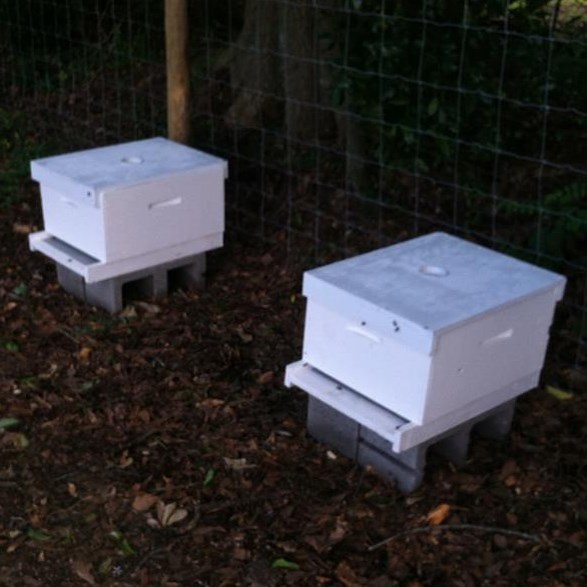
NATIONAL PARK SERVICE Honeybee hives have provided humans with honey and beeswax for years and with such commercial uses have spawned a large beekeeping industry. Honeybees are social and cooperative insects and the hive is generally divided into three (3) types, the workers, the drones and the queen. The worker bee is the only bee that most people will ever see because they are the ones that forage for food (pollen and nectar from flowers), build and protect the hive, clean, circulate air by beating their wings, and perform many other societal functions. Worker bees are females that are not sexually developed. Drones are male bees and several hundred live in each hive during the spring and summer, but they are expelled for the winter months when the hive goes into survival mode. The hive lives on stored honey and pollen all winter and cluster into a ball to conserve warmth. The larvae are fed from the stores during this season and by spring; the hive is swarming with a new generation of bees. The queen has a simple job, lay the eggs that will spawn the hive's next generation. In a hive there is usually one queen and if she dies,the workers will create a new queen by feeding one of the worker females a special diet of a food called "royal jelly." This food source enables the worker to develop into a fertile queen. The queen also regulates the activity of the hive by producing chemicals that guide the behavior of the other bees. Mr. Earl Carter had honeybees on the farm that he used to help pollinate his crops. He also cultivated the honey from the hives and sold it in the commissary store. |
Last updated: June 28, 2017
